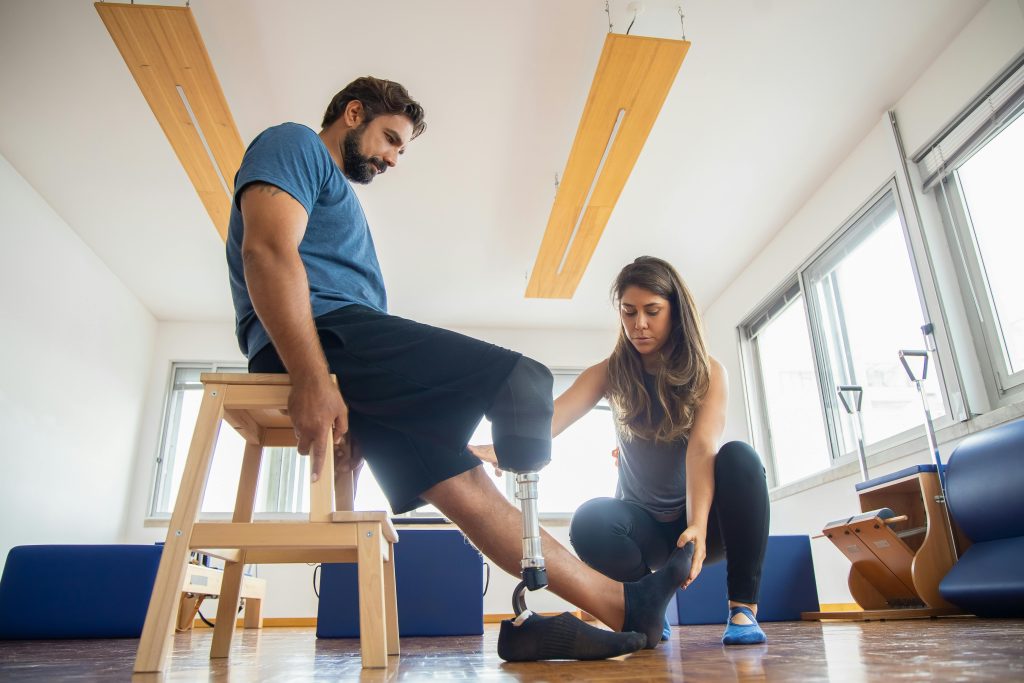Imagine needing help to get out of bed each morning, but not knowing where to turn. Or being told your dream job isn’t “accessible” because employers don’t understand the law. This is the daily reality for many of the 14.6 million disabled people in the UK – a population larger than Greater London.
Yet here’s what most people don’t realize: There’s an entire support system available, from financial help to workplace accommodations, that could transform lives. The problem? The system is complex, underpublicized, and often requires jumping through bureaucratic hoops.
This guide cuts through the confusion. Whether you’re newly disabled, supporting a loved one, or just want to understand your rights, we’ll walk you through:
- The financial support you might be missing
- Workplace protections you didn’t know you had
- Hidden local services that could make daily life easier
Let’s begin.
1. Understanding Disability in the UK: Key Facts
Before diving into services, let’s ground ourselves in the reality of disability today:
- 1 in 5 working-age adults have a disability
- Only 53% of disabled people are employed vs 82% of non-disabled
- The disability pay gap stands at 13.8%
- 83% of disabilities are acquired during adulthood
Legal definition: Under the Equality Act 2010, you’re disabled if you have a physical or mental impairment that has a ‘substantial’ and ‘long-term’ negative effect on your ability to do normal daily activities.
2. Financial Support: The Benefits Breakdown
Personal Independence Payment (PIP)
- What it is: Help with extra living costs
- Amount: £26.90 to £172.75 weekly
- Key fact: 38% of applicants get rejected first time – but 65% win on appeal
Employment and Support Allowance (ESA)
- For those: Too ill to work
- Amount: Up to £84.80 weekly
- Pro tip: The assessment focuses on what you can’t do, not your diagnosis
Disability Living Allowance (DLA) for Children
- For: Under-16s needing extra care
- Amount: £26.90 to £172.75 weekly
- Little-known fact: Can be backdated to birth if diagnosed later
Attendance Allowance
- For: Over State Pension age
- Amount: £68.10 or £101.75 weekly
- No assessment needed for terminal illnesses
Shocking gap: An estimated £15 billion in disability benefits goes unclaimed each year.
3. Workplace Rights: What Employers Must Provide
The Equality Act 2010 requires “reasonable adjustments”:
Physical Adjustments
- Ramps for wheelchair access
- Ergonomic chairs or standing desks
- Accessible toilets
Working Pattern Changes
- Flexible start times for medication routines
- Additional breaks for chronic pain
- Work-from-home options
Support Equipment
- Screen readers for visual impairments
- Noise-cancelling headphones for autism
- Speech-to-text software
Case study: After requesting a £500 sit-stand desk, one employee’s productivity increased by 20%.
4. Education Support: From Classroom to Campus
Schools
- EHCPs (Education Health Care Plans): Legally-binding support plans
- Teaching assistants: 1:1 support where needed
- Exam accommodations: Extra time, rest breaks
Universities
- Disabled Students’ Allowance: Up to £25,000/year for equipment
- Note-takers or interpreters
- Extended library loans
Stat: Students with EHCPs are 3x more likely to attend university than other SEN students.
5. Housing Adaptations: Making Homes Accessible
Disabled Facilities Grants
- Up to £30,000 for home modifications
- Covers ramps, stairlifts, wet rooms
- No repayment needed
Council Tax Reductions
- Up to 100% discount if home is adapted
- Applies if you need a wheelchair-accessible room
Hidden help: Some energy companies offer priority services registers with extra support during outages.
6. Transport and Mobility Assistance
Blue Badge Scheme
- Park closer to destinations
- Now covers hidden disabilities like autism
Disabled Person’s Railcard
- 1/3 off train travel
- Costs just £20/year
Freedom Pass (London)
- Free travel on buses, tubes, trains
- Automatic if you get PIP
Travel tip: Most airlines offer priority boarding if you contact them in advance.
7. Local Authority Services: The Hidden Gems
Short Breaks (Respite Care)
- Gives carers a rest
- From a few hours to weeks
Direct Payments
- Control your own care budget
- Hire PAs instead of using council carers
Community Equipment
- Free wheelchairs, shower chairs
- Often no waiting list
Must-know: Your right to a Care Act assessment regardless of finances.
8. Mental Health Support
Talking Therapies
- NHS-funded counselling
- Self-referral available
Crisis Support
- 24/7 helplines
- Sanctuary schemes to avoid hospital
Peer Support
- Local Mind groups
- Online communities
Alarming gap: 75% of mental health conditions develop before age 24, yet most services target adults.
9. Technology That Changes Lives
Assistive Tech Grants
- Smart home devices
- Eye-gaze computers
Communication Aids
- Speech-generating devices
- Symbol-based apps
Innovation spotlight: Brain-controlled wheelchairs now being trialled in the NHS.
10. How to Navigate the System
The Golden Rules
- Always appeal if rejected (67% success rate)
- Get evidence from specialists
- Use advocacy services (free support)
Top Organizations
- Citizens Advice
- Scope
- Disability Rights UK
The difference between struggling and thriving often comes down to one piece of paper – a form you didn’t know existed, a benefit you didn’t realize you qualified for, a right you didn’t understand you had.
Disability might limit certain abilities, but it shouldn’t limit opportunity. Yet without knowledge of the support available, millions face unnecessary barriers.
If you take one thing from this guide, let it be this: The system is there to serve you. Not perfectly, not always easily – but it exists. Your job isn’t to struggle silently, but to claim what you’re entitled to.
Start today with one small step:
- Book that benefits assessment you’ve been putting off
- Email your employer about that adjustment you need
- Call your council about home adaptation grants
Because the life you want isn’t about overcoming your disability – it’s about accessing the support that makes overcoming barriers possible.

